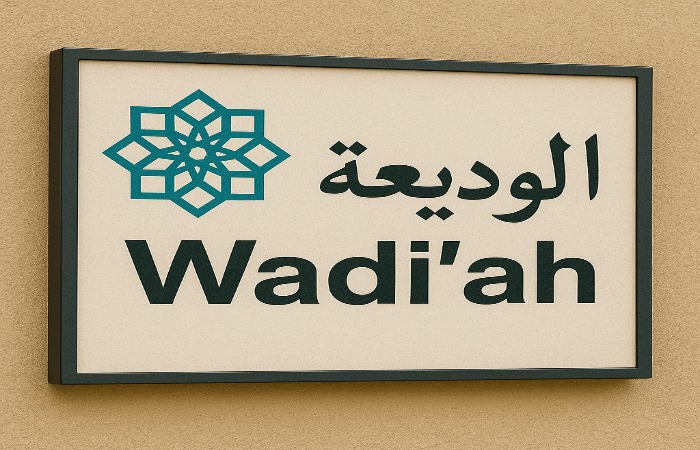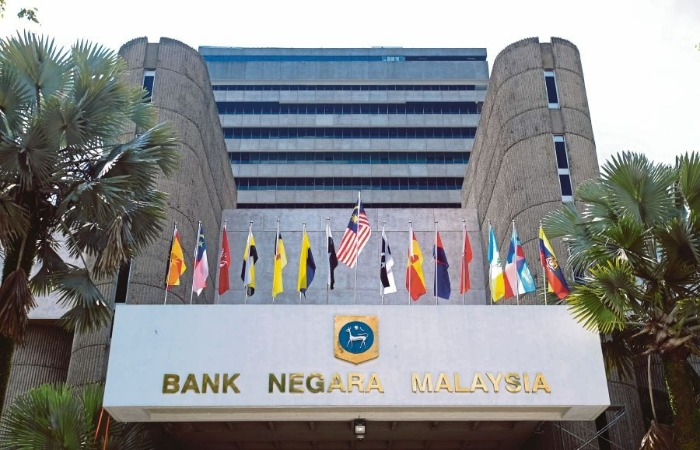Wadi’ah (Arabic: الوديعة) refers to an Islamic contract of safekeeping, where a depositor entrusts their property or assets to a custodian for protection. It is rooted in the principle of amanah (trust). The contract of wadi’ah is widely applied in Islamic finance, particularly in savings and current accounts. Unlike investment contracts, wadi’ah is not meant to generate guaranteed returns. Instead, it is based on the custodian’s responsibility to safeguard assets and return them on demand.
Historically, wadi’ah existed even before the advent of Islam. The Prophet Muhammad ﷺ himself was entrusted with the belongings of the Quraysh, and upon his migration to Madinah, he instructed Ali ibn Abi Talib (RA) to return those items to their rightful owners. Today, the concept forms part of modern Islamic banking and financial practices.
Key Takeaways
- Wadi’ah is an Islamic safekeeping contract based on trust (amanah).
- The depositor is called the mudi‘, the custodian is the wadi‘ or mustawda‘, and the asset is the wadi’ah.
- Custodians are not liable for loss unless negligence or misconduct is proven.
- Two main types exist: Wadi’ah Yad al-Amanah (custodianship without liability) and Wadi’ah Yad al-Dhamanah (guaranteed safekeeping).
- In Islamic banking, wadi’ah underpins savings and current accounts, where banks may at their discretion give customers hibah (voluntary gifts).
Sources of Law
Although the Quran does not explicitly mention wadi’ah, it emphasizes the importance of fulfilling trusts. For example:
- “Indeed, Allāh commands you to render trusts to whom they are due…”. - (Quran 4:58).
- “the believers are also˺ those who are true to their trusts and covenants” - (Quran 23:8).
Prophetic traditions (hadith) also stress safeguarding entrusted property. For instance, the Prophet ﷺ said: “'Whoever is entrusted with an item for safekeeping, is not responsible for it (so long as he is not negligent)'. ” (Sunan Ibn Majah 2401).
In the Sunnah, Al-Bayhaqi narrated that ‘A’ishah said on the occasion of the Prophet’s migration to Medina (Hijrah), “The Messenger of Allah asked ‘Ali to take his place in Makkah in order to deliver the deposited things to their owners.
These scriptural foundations make wadi’ah universally accepted by Islamic jurists as a permissible and socially necessary contract.
Conditions of Wadi’ah
Like all Islamic contracts, wadi’ah has pillars (arkan) that ensure validity:
- Declaration (Offer and Acceptance): There must be mutual consent between depositor and custodian.
- Parties: Both depositor and custodian must have legal capacity, i.e., be sane and mature.
- The Asset: The deposited property must be lawful and valuable in Islamic law (e.g., not alcohol or pork).
The custodian cannot use the deposited asset without permission, and is only liable in cases of negligence, breach, or misconduct.
Prohibited Elements
Certain actions are not allowed in wadi’ah, including:
- Unauthorized Use of Deposits
All four schools agree that the custodian has no right to use a deposited asset without explicit permission from the depositor. If the custodian does so, liability arises.
- Hanafi: Unauthorized use makes the custodian a ghasib (usurper). He must return the principal and, in some Hanafi opinions, the profit derived must be given in charity, not retained.
- Maliki: If the custodian uses the deposit without permission but returns it intact, he may keep the profit. However, he is still considered sinful for breaching trust.
- Shafi‘i & Hanbali: Both schools hold that any profit generated from unauthorized use belongs entirely to the depositor. Custodians may not benefit since the foundation of wadi’ah is amanah (trust), not investment.
2. Traveling with Deposits
Jurists debated whether custodians may travel with entrusted goods, since travel increases risk.
- Hanafi: Permitted, provided the depositor has not expressly forbidden it and the route is safe. Losses in such cases do not impose liability if the custodian exercised due care.
- Maliki: Prohibited unless the deposit was originally entrusted during travel. Under normal circumstances, the custodian must keep the asset in the same location or entrust it to a trustworthy person in the same area before traveling.
- Shafi‘i & Hanbali: Generally prohibit traveling with deposits. If the custodian must travel, he should return the deposit to the owner, an agent, or authorities. If he travels with it anyway, he becomes liable for loss or damage.
3. Entrusting to Third Parties
Whether a custodian can hand deposits to others is another area of discussion.
- Hanafi: Permitted if the deposit is entrusted to immediate family members (e.g., spouse or children) since they share responsibility. Handing over to strangers is not allowed unless to protect the deposit from harm.
- Maliki: Similar to the Hanafi position. Family members can be trusted, and transfer to third parties is acceptable if done for protection or necessity.
- Shafi‘i & Hanbali: Stricter. The custodian is bound to hold the deposit personally. Transfer without explicit permission is considered negligence and may result in liability, except in cases of unavoidable necessity (e.g., saving the deposit from destruction).
- Mixing Deposits with Other Property
The main concern is the risk of confusion or disputes over ownership.
- All Schools: Agree that the deposit should be kept separate from the custodian’s property. If mixed, the custodian must still be able to identify and return the deposit.
- Hanafi: If mixing makes the deposit indistinguishable, it is considered negligence, and the custodian is liable to return the equivalent value.
- Maliki, Shafi‘i, Hanbali: Adopt similar rulings: the custodian must restore the deposit or its equivalent in full if it cannot be separated. If the deposit can be clearly identified despite mixing, no liability arises.
4. Violating Depositor’s Conditions
When a depositor sets conditions on how and where the deposit should be kept, the custodian is obliged to comply.
- Hanafi, Shafi‘i, Hanbali: If the custodian ignores these conditions and the deposit is lost, he is liable. Liability arises because he deviated from the entrusted terms. If the alternative method of safekeeping was equally or more secure, liability may not apply.
- Maliki: Generally align with the above view but emphasize that depositor restrictions should not impose unnecessary hardship. If the custodian chooses an equally safe or safer option, liability is waived.
Across the schools, the consistent principle is that wadi’ah is a trust-based contract. Any deviation (unauthorized use, travel, transfer, mixing, or violating conditions) shifts the custodian from being a trustee (amin) to a guarantor (damin), thereby imposing liability for loss. Differences lie mainly in how much discretion the custodian is allowed, especially in traveling with deposits and retaining profits from unauthorized use.
Types of Wadi’ah
1. Wadi’ah Yad al-Amanah (Custodianship)
- Deposit is treated purely as a trust.
- Custodian is not liable for loss unless negligent.
- No profit can be generated or taken by the custodian.
- Assets must be returned on demand.
2. Wadi’ah Yad al-Dhamanah (Guaranteed Custody)
- Combines safekeeping with a guarantee.
- Custodian (e.g., a bank) may use deposited funds but must guarantee their return.
- Similar to a loan (qard), but banks may offer hibah (voluntary gifts) to depositors.
- Widely used in modern banking savings and current accounts.
- Modern Applications in Banking
In Islamic finance, wadi’ah underpins two main types of accounts:
- Savings Accounts: Customers deposit money for safekeeping. Banks may use the funds and sometimes grant discretionary hibah, but no profit is guaranteed.
- Current Accounts: Used for safekeeping and daily transactions. Funds are fully guaranteed but do not generate returns.
For example, Malaysian Islamic banks offer wadi’ah-based accounts with benefits like ATM access, internet banking, salary crediting, and sometimes zakat management.
Documentation
Wadi’ah contracts in banks are simple and primarily confirm:
- Agreement to deposit and safeguard assets.
- Permission (if any) for the bank to use the funds.
- Terms on withdrawal, guardianship (for minors), and regulatory compliance (e.g., AMLA rules).
Sharia Issues
- Hibah must not be pre-promised; otherwise, it resembles interest (riba).
- Deposits must be lawful; banks must reject funds from prohibited or illegal sources.
- Inheritance laws (faraid) apply upon depositor’s death, ensuring rightful heirs receive the funds.
Wadi’ah is an ancient Islamic concept of trust and safekeeping. It continues to play a vital role in modern Islamic banking. While it originated as a simple arrangement between individuals, today it underpins billions of dollars in deposits globally. The principle remains the same: assets must be safeguarded with integrity and returned to their rightful owners on demand, reflecting the central Islamic value of fulfilling trusts.















